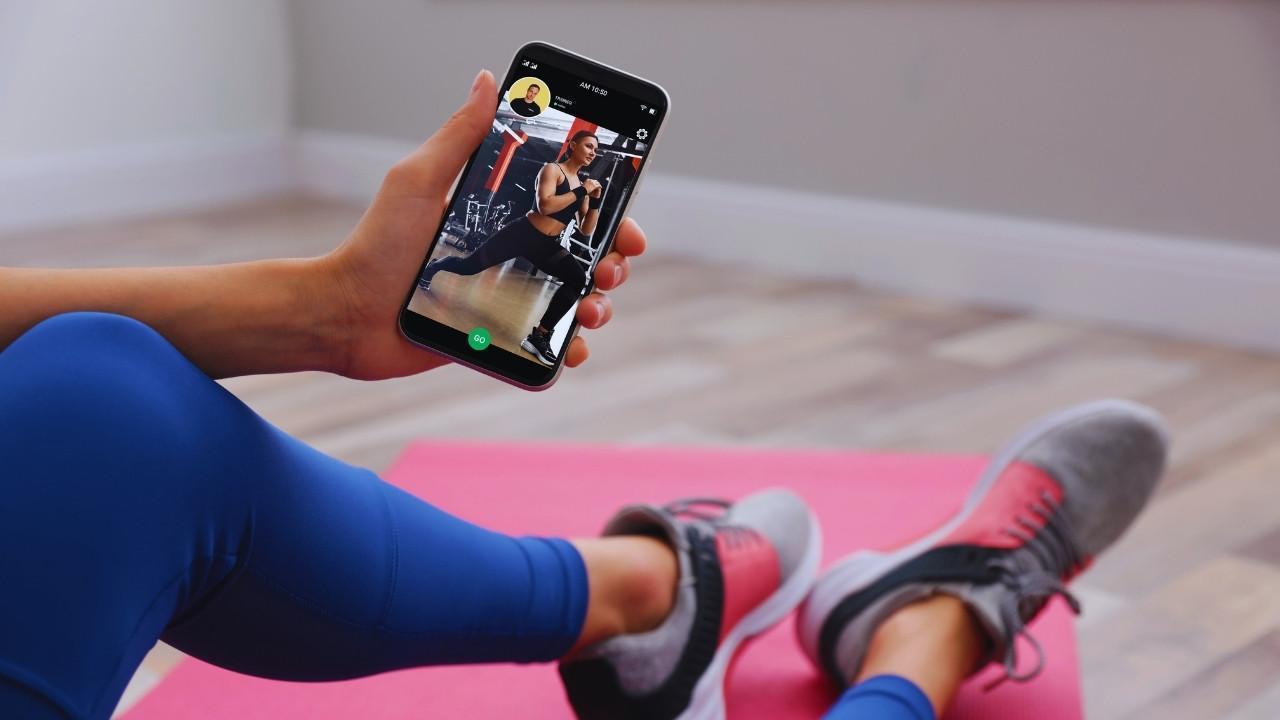You have not yet added any article to your bookmarks!

Join 10k+ people to get notified about new posts, news and tips.
Do not worry we don't spam!

Post by : Sameer Farouq
The health technology landscape has moved far beyond simple step counters and calorie logs. Today’s ecosystem links live biometric feeds, virtual consultations and machine learning to deliver tailored health intelligence. This shift sped up after the pandemic, with remote monitoring and mobile-first care becoming routine.
Contemporary wellness applications gather rich physiological signals — from heart-rate variability and sleep architecture to blood oxygenation and stress indicators. When these feeds are tied to verified digital identities, they form individualized health records that can forecast risks, refine training regimes and support chronic disease management.
Yet as these capabilities expand, a central question grows: what trade-offs are users making between insight and privacy?
Digital identity has outgrown its traditional role as a travel or civic credential; it is becoming the infrastructure for modern care delivery. Governments and private enterprises are piloting secure, interoperable identity schemes to enable streamlined access to records, prescriptions and insurance functions.
In jurisdictions rolling out national health IDs, citizens may authenticate with biometrics or cryptographic tokens to access government portals. The upside is significant: faster admissions, instant retrieval of medical histories and predictive analytics that inform care. But tighter linkages also increase systemic exposure.
A breached identity does more than compromise login details — it can reveal medical histories, genomic information and sensitive behavioural health records. With health data breaches among the costliest and most consequential, safeguarding digital identities is increasingly a matter of public health policy.
Wellness platforms depend on large volumes of user data to produce personalised recommendations, yet most people do not fully grasp the extent or commercial use of the information they provide. Aggregators and advertising networks can repurpose ostensibly anonymised health signals, raising ethical concerns.
This creates a privacy paradox: consumers desire personalised, frictionless services but hesitate to surrender sensitive information. Many apps exploit that tension, hiding broad data-sharing permissions inside lengthy terms and conditions.
Regulatory movements in the EU and North America increasingly promote "privacy by design" for digital health: building transparency and granular user controls into products. Such approaches aim to restore meaningful choice and agency over personal health data.
Artificial intelligence powers a wide range of wellness features, from fertility forecasting to sleep disorder screening, by learning from patterns in user inputs and physiological measurements.
But intensive monitoring raises ethical dilemmas. Persistent tracking risks turning helpful analytics into pervasive surveillance, and algorithmic models trained on skewed datasets can misread signals from underrepresented populations.
Calls for transparency and algorithmic explainability are growing. Policymakers and researchers stress the need for human oversight, independent audits and open documentation to ensure AI-driven health tools are fair and dependable.
The global wellness sector — a multi-trillion-dollar market — rests on consumer confidence. Whether it’s a meditation app, bespoke nutrition plan or AI fitness coach, credibility depends on how data is handled.
Firms are responding to sceptical users by offering clearer privacy controls, encrypted services and better anonymisation practices. Apps that openly communicate data use and protection are positioning themselves as trustworthy partners rather than opaque service providers.
This marks a turning point: future market leaders will combine convenience with demonstrable ethical practices and robust data stewardship.
Legislators are beginning to align rules with the realities of digital healthcare. Europe’s AI Act and Digital Services Act are shaping global expectations for responsible AI and data governance in wellness technologies.
In the United States, HIPAA continues to evolve to address cloud-based and consumer-facing platforms. Across Asia and the Middle East, national strategies are emerging to clarify ownership, protection and portability of health data.
Such regulatory momentum underscores a shared recognition: technology alone will not secure the future of digital health without appropriate governance and accountability.
App-based therapy and mood-tracking tools have broadened access to mental health support, but they also introduce delicate privacy questions.
Some services retain conversation logs or aggregate mood data to model emotional trends. Absent strong safeguards, such sensitive records are vulnerable to misuse. Protecting mental health data therefore requires heightened ethical standards.
Experts recommend data minimisation — collecting only what is essential — and giving users clear options to export or delete their records. Informed consent and transparency are essential to preserve trust in digital mental health offerings.
Interoperability — the ability for devices and systems to exchange data — is among health tech’s most promising advances. Imagine a smartwatch, a clinical record and a nutrition app working together to form a real-time picture of health.
Integrated data could improve prevention: AI might detect early hypertension or sleep disorders by correlating metrics across platforms.
But more connections also mean more attack surfaces. A secure, patient-first architecture that preserves consent and data ownership must be central to any interoperable model.
Blockchain offers a decentralised mechanism for safeguarding health information. By enabling encrypted, user-controlled records and verifiable access via smart contracts, it reduces reliance on centralised repositories.
Estonia and other early adopters have shown how cryptographically secured e-health frameworks can increase transparency. While blockchain is not a cure-all, its immutable and permissioned features may underpin future identity-safe systems.
Despite technical and legal progress, consumer understanding remains crucial. Many users underestimate how metadata — like activity levels or sleep patterns — can reveal sensitive inferences about health.
Public education, ethical branding and user-centred design will be necessary to raise digital literacy. As demand for accountability grows, companies will need to move from mere compliance to principled stewardship.
The trajectory of health technology hinges on balancing technological progress with privacy and ethical responsibility. As digital identities unlock new pathways to care, stakeholders must ensure that innovation respects human agency.
The union of AI, data analytics and personalised wellness can enable earlier detection and better outcomes, but only if steered by a human-centred ethic that values both security and dignity.
When built responsibly, digital health can reshape how societies understand wellbeing — blending autonomy, safety and collective benefit.
This article is provided for informational purposes only and is not a substitute for professional medical, legal, or financial advice. Readers should consult qualified experts before making decisions about healthcare, technology use, or data protection.










Study Warns Using AI for Medical Advice Is ‘Dangerous’ as Users Get Inaccurate Health Guidance
A major new study reveals that artificial intelligence (AI) chatbots and tools may give misleading o

Top Sci-Fi Movies Streaming on Netflix This February: Must-Watch Picks for Genre Fans
A curated news-style guide to the best science fiction films currently available on Netflix in Febru

BCCI Central Contracts Shake-Up: Kohli, Rohit Moved to Grade B as Board Reshapes 2025–26 List
Virat Kohli and Rohit Sharma have been placed in Grade B in the BCCI’s 2025–26 central contract list

Dalal Street Spotlight: Top 10 Stocks Investors Are Watching as Markets Open on a High
Indian stock markets begin the week with strong momentum, and several blue-chip and mid-cap stocks a

Market Movers Today: Key Stocks Set To Watch In Indian Markets
Indian equity markets are poised for active trading as several major companies, including Bharti Air

Milan Welcomes the World: Inside the Grand Opening Ceremony of the 2026 Winter Olympics
The 2026 Winter Olympics opening ceremony in Milan marked a defining moment for global sport, blendi